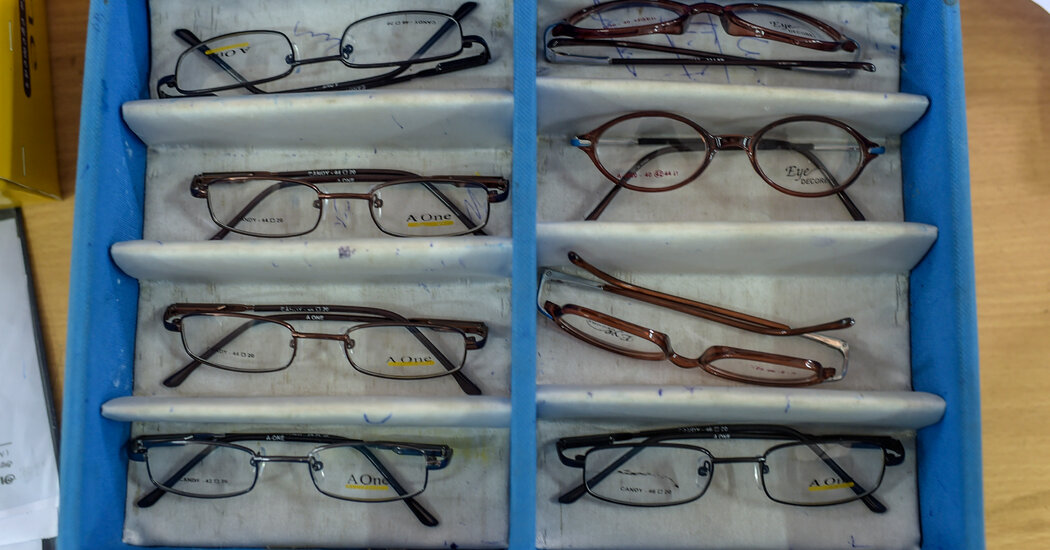A study found that when older workers in Bangladesh were given free reading glasses, they earned 33 percent more than those who had not.
If you’re 50 or older and reading this article, chances are you are wearing a pair of inexpensive reading glasses to correct your presbyopia, the age-related decline in vision that makes it progressively more difficult to see fine print and tiny objects.
Eventually, everyone gets the condition.
But for nearly a billion people in the developing world, reading glasses are a luxury that many cannot afford. According to the World Health Organization, the lack of access to corrective eyewear inhibits learning among young students, increases the likelihood of traffic accidents and forces millions of middle-age factory workers and farmers to leave the work force too early.
Uncorrected presbyopia, not surprisingly, makes it harder for breadwinners to support their families. That’s the conclusion of a new study which found that garment workers, artisans and tailors in Bangladesh who were provided with free reading glasses experienced a 33 percent increase in income compared to those who were not given glasses.
A normal part of aging, presbyopia occurs when the eye becomes increasingly rigid, making it harder to focus on nearby objects.
The study, published on Wednesday in the journal PLOS One, included more than 800 adults in rural Bangladesh, many of whom work in jobs that require intense attention to detail. Half of the participants — a mix of tea pickers, weavers and seamstresses between 35 and 65 — were randomly chosen to receive a free pair of reading glasses. The others were not given glasses.
Researchers followed up eight months later and found that the group with glasses had experienced a significant bump in income, receiving an average monthly income of $47.10, compared to $35.30 for the participants who did not have glasses.
